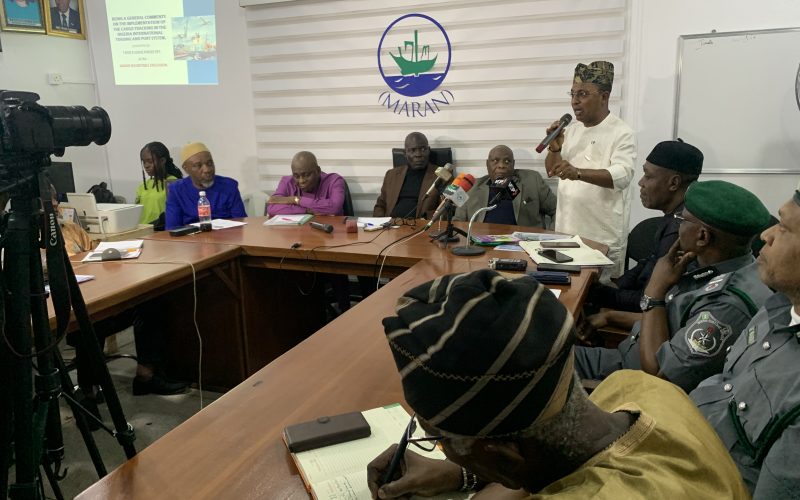Stakeholders in the maritime industry have expressed mixed opinions on the implementation of the International Cargo Tracking Note (ICTN) in Nigeria.
During a round table discussion centered on the implementation ICTN which was organized by the Maritime Reporters Association of Nigeria ( MARAN) at their secretariat situated at 13C Marine Road Apapa , recently in Lagos .
Some stakeholders support the government’s plan to introduce the ICTN, others argue that it should be handled differently.
The benefits of ICTN implementation include comprehensive monitoring of shipments to curb harmful imports, increased revenue collection, and improved maritime trade .
The Nigeria Customs Service (NCS) has assured stakeholders that costs associated with ICTN will be offset by savings from reduced delays and demurrage charges.
However, some stakeholders argue that there is no law backing the ICTN implementation, and that it will result in higher clearing costs for shippers.
The National President of the National Council of Managing Directors of Licensed Customs Agents (NDLCA) disputed claims that ICTN is a UNCTAD-backed initiative, arguing that it lacks formal convention or rule status.
Despite the controversies, the Nigerian Shippers’ Council (NSC) has expressed willingness to reintroduce the ICTN system, emphasizing its importance for security and revenue generation.
The NSC aims to minimize costs associated with ICTN and ensure its implementation benefits all stakeholders.
The Maritime Reporters Association of Nigeria (MARAN) has called for a fresh perspective and understanding of lessons learned from past attempts to implement ICTN.
With 32 African countries already implementing ICTN, Nigeria is under pressure to follow suit and reap the benefits of improved maritime trade and revenue collection.

